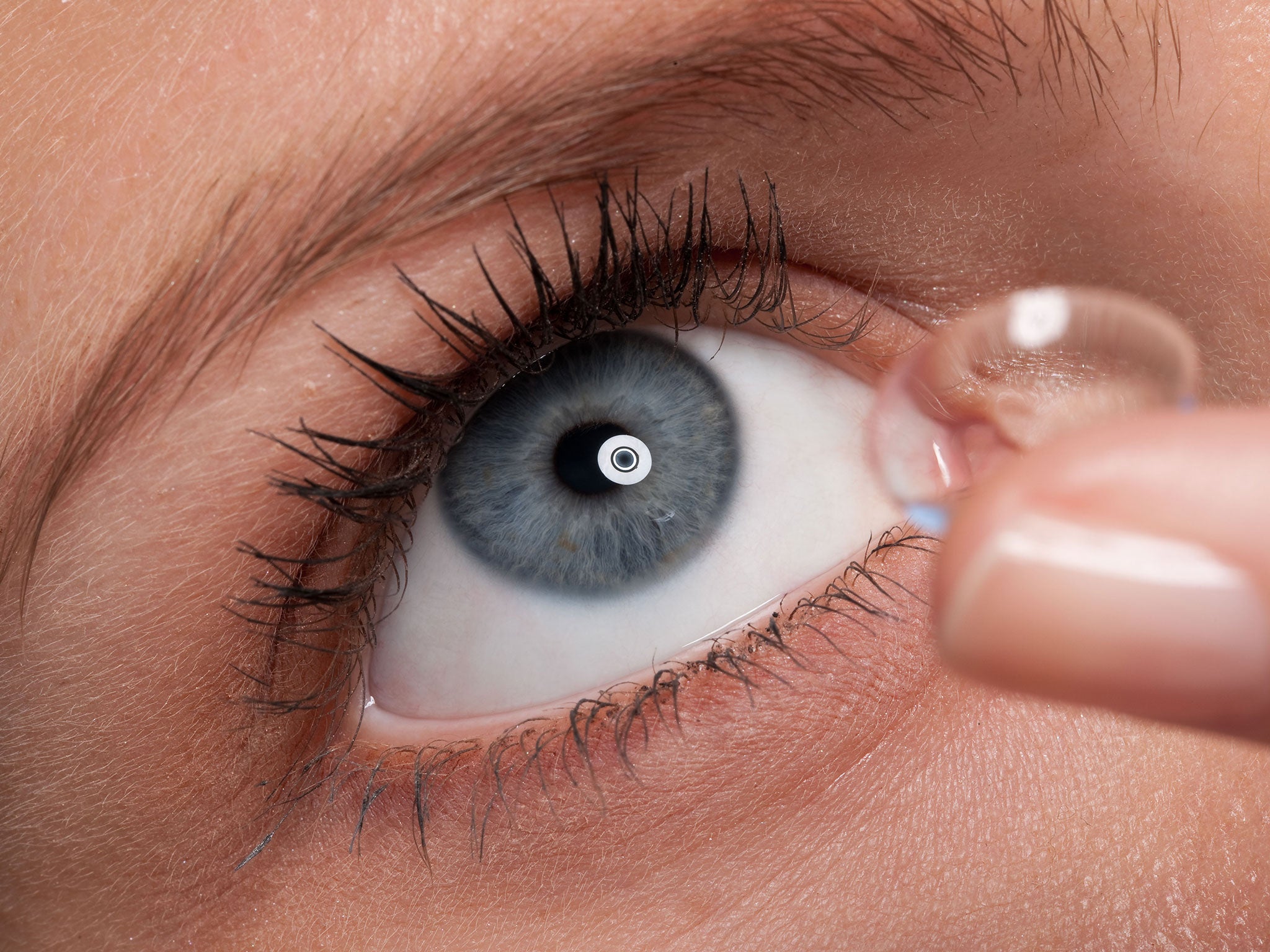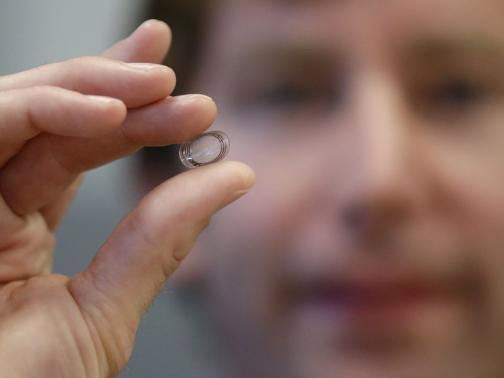Researchers develop contact lens that tells people with diabetes when they need to take medication
Lens contains a transparent sensor that measures glucose levels in tears

Researchers are developing a revolutionary contact lens that could change the lives of millions of people suffering from type 1 diabetes.
Living with the disease can be stressful as doctors recommend diagnosed patients test their blood four to eight times a day.
The lens would use people’s tears to monitor their blood glucose levels, saving them time and potentially improving their health.
“I have a friend who has diabetes, and saw the issues he faces managing his sugar levels,” Gregory Herman, leader of the Oregon State University research team, told The Independent.
Diabetes is a long-lasting health condition that causes the amount of sugar in the blood to become too high. There are two main types of diabetes: type 1 and type 2, both serious and without cure.
The pancreas produces a hormone called insulin that controls the level of glucose in the bloodstream. Patients diagnosed with type 1 diabetes don’t produce this hormone and need regular insulin treatment to avoid complications.
“My group started getting serious on glucose sensors for the development of an artificial pancreas a few years ago in collaboration with Pacific Diabetes Technologies," said Dr Herman.
“We decided to take a different direction than the company which led us to the transparent sensor that can be integrated into a contact lens."

The technology consists of a transparent biosensor that can go anywhere on the contact lens. This sensor detects changes to pH, or acidity levels, and measures the amount of glucose in tears.
“The lens will let people know when to give themselves injections and for patients wearing insulin pumps the signal can provide information for self-regulation,” he said.
In 2014, Google began testing a prototype of its own smart lens built to measure glucose concentrations in tears, using a tiny wireless chip and miniaturised glucose sensor.
But the project has been delayed, as its giant pharmaceutical partner Novartis announced last year that they were backing off from the trial due to technical difficulties.
It is estimated that there are around 415 million people living with diabetes worldwide and 4.5 million in the UK alone, according to Diabetes UK.
At the moment, the prototype tested in lab can only detect the level of glucose in the blood. The team hopes it could also identify other medical conditions, such as cancer, eye diseases and multiple sclerosis, a condition that affects the brain and spinal cord.
“Since we can include more sensors we can check for other biomarkers well beyond just glucose. For example, we have shown that the technology works for uric acid as well, which is an indicator for renal disease.
“Our goal is to incorporate hundreds of sensors into a single contact lens,” said Dr Herman.
The findings were published last year in the science journal Nanoscale and Applied Materials & Interfaces and are presented today at the American Chemical Society meeting in San Francisco, California.
Join our commenting forum
Join thought-provoking conversations, follow other Independent readers and see their replies
Comments